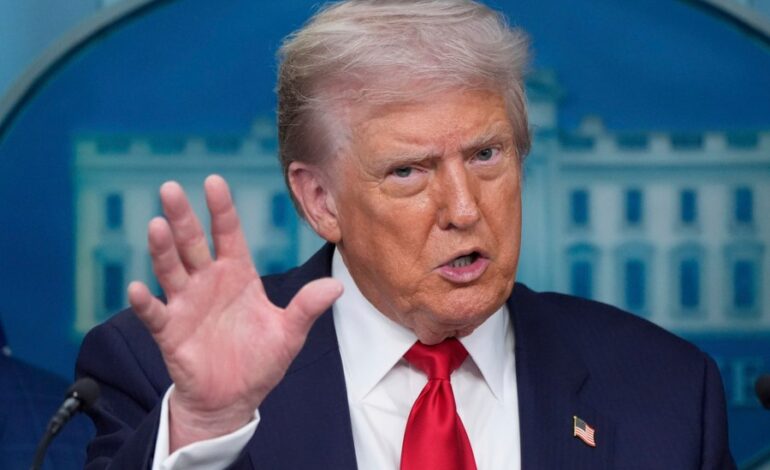Trump Proposes Tariffs for Nations Threatening Nuclear War

Former President Donald Trump has suggested that the United States should implement punitive tariffs whenever a foreign nation issues threats of nuclear war. This proposal reflects a stark stance on international diplomacy and security, emphasizing that such threats should not be normalized in diplomatic exchanges.
Trump’s remarks come in the context of increasing tensions among global powers, where nuclear rhetoric has resurfaced. He asserts that strong economic measures, such as tariffs, could serve as a deterrent against hostile actions by foreign governments. This approach focuses on the idea that economic penalties may influence nations to reconsider their aggressive postures.
Context of Nuclear Threats
The discussion around nuclear threats is particularly relevant given recent geopolitical developments. Nations including North Korea and Iran have made headlines with their nuclear ambitions, prompting concern among international leaders. Trump argues that the United States must take a firm stance against such threats, suggesting that failing to respond adequately could embolden these nations.
In Trump’s view, a tariff system would be a practical step to demonstrate America’s commitment to global security. He believes that by imposing tariffs, the U.S. could signal its disapproval of hostile rhetoric and actions, thereby protecting its interests and those of its allies. The former president’s proposal also raises questions about the balance between economic policies and national security strategies.
Potential Economic Implications
Implementing tariffs as a response to nuclear threats could lead to significant economic implications, not just for the countries directly involved but also for global markets. Critics argue that such measures could escalate tensions and lead to retaliatory actions from affected nations. The potential for a trade war looms large, with economic repercussions that could extend beyond the initial targets.
According to economic analysts, tariffs could strain diplomatic relations and complicate existing trade agreements. Nations might respond with their own tariffs, which could disrupt global supply chains and impact various industries. The balance between maintaining national security and fostering international trade is delicate, and Trump’s proposal may shift that balance.
In a statement, a senior economist noted, “Imposing tariffs in response to nuclear threats could create a volatile environment. The repercussions may not only affect the countries involved but could also ripple across the global economy.”
Trump’s proposal reflects his broader view of foreign policy, where economic strength is seen as a tool for achieving security objectives. Critics, however, caution that this approach could lead to isolationism and undermine long-term diplomatic efforts aimed at nuclear disarmament and global cooperation.
As tensions continue to simmer in various regions, Trump’s statement adds another layer to the ongoing debate about the best strategies for addressing nuclear threats. His call for tariffs raises essential questions about how nations can effectively respond to aggression while maintaining stable international relations.
In conclusion, the idea of imposing tariffs as a punitive measure against nations threatening nuclear war highlights the complex interplay between economics and security. While Trump advocates for a strong response to ensure global safety, the potential fallout from such actions warrants careful consideration by policymakers and international leaders.






